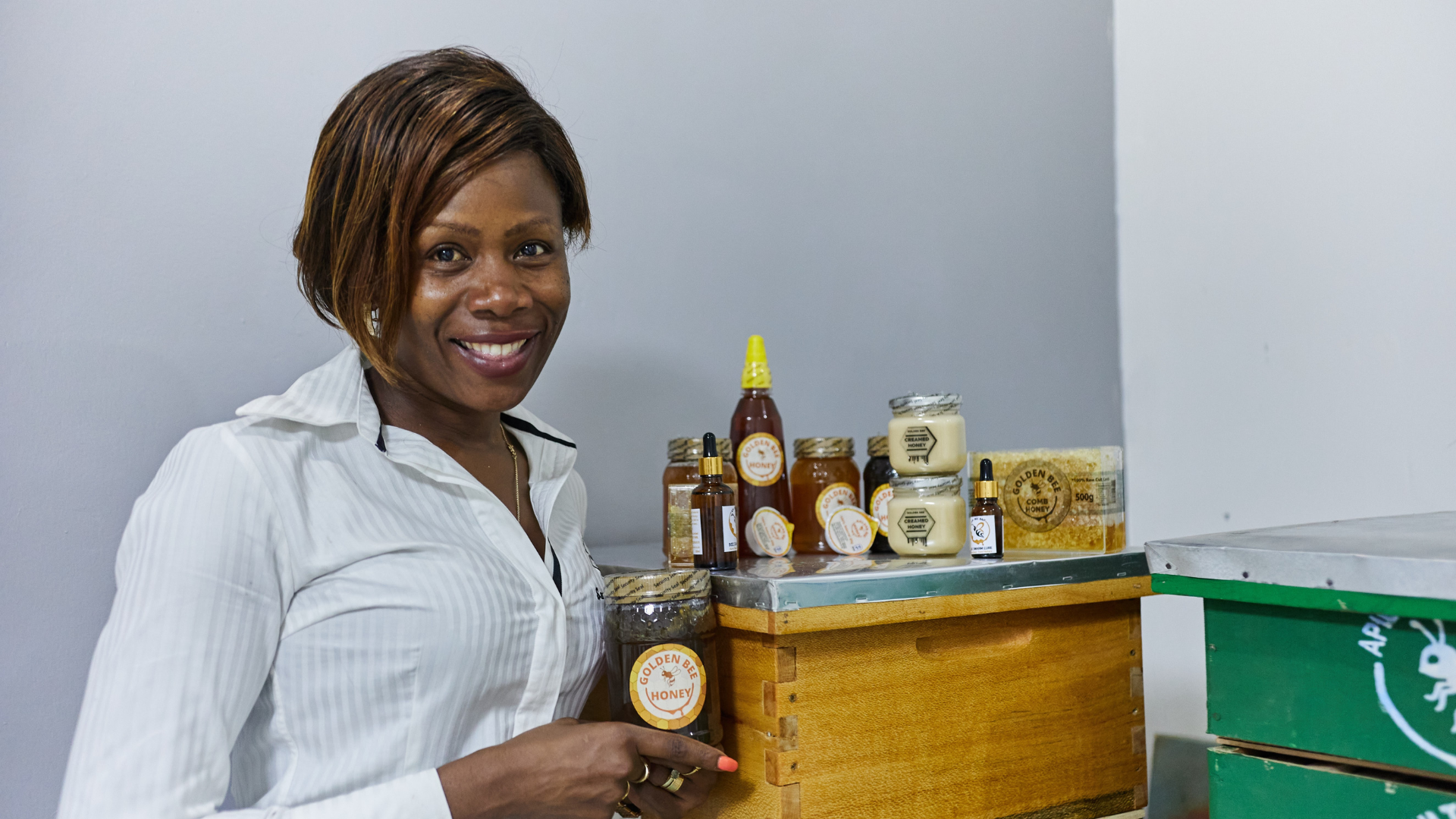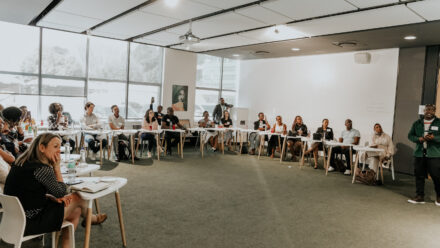Cash is king, but that doesn’t always mean layoffs
- Name: Pauline Otila
- Job title: Managing Director
- Company: Apiculture Venture
- Programme: Survive to Thrive
- Country: Kenya

Celebrating Pauline Otila, MD at Apiculture Venture Limited in Kenya for Choosing People
Located in Nairobi’s busy industrial area is the Kenyan company Apiculture Venture, a beekeeping business that stays as busy as the bees they keep. This is thanks to Pauline Otila the founder and Managing Director, who is known by all as the “Queen Bee”. Apiculture manufactures and offers training on modern beekeeping equipment, they provide pollination services to large scale farmers. They also process and package honey under the brand name, Golden Bee Honey.
Pauline describes 2020 as a tough year. “For a moment I thought about closing the company so as soon as I heard about Survive to Thrive, I automatically applied.”
Through the programme Pauline got a chance to interact with other entrepreneurs which helped her find immediate solutions to keep her company afloat. Communication was among the first key lessons she learnt.
“Talking to other participants in the programme was one of my main highlights. Just by listening to other business owners from across Africa share how they were coping with the pandemic, I started looking at things differently. One of the participants shared how he took the step to openly talk to his team about what was happening which pushed me to also go ahead talk to my team. Together we came up with a working schedule, an alternating office duty roaster that enabled us to continue our business operations. I’m so glad I didn’t have to lay off any of my staff.”
Pauline Otila also known as Queen Bee describes herself as the kind of manager who would never involve her team in decision-making but because of the programme, she has come to realise that without involving her team her dream to grow Apiculture Venture will forever remain as her dream. She also attributes immediate impact in her business to one of the virtual sessions in the programme where they got a chance to review their strengths and weaknesses.
“There’s a particular session where we talked about the strengths and weaknesses of our businesses. I had never thought about it but after the learning session I went ahead and spent some quiet time and wrote everything down. To date, the things I wrote are on my vision board, both for my business and for me as the main driver of the business. I actually usually reference it a lot whenever we go into meetings with my staff,” she says.
Apiculture Venture currently offers services to the 47 counties of Kenya. They have partners in Tanzania with a lot of growing demand in Kenya and a few other countries in Africa. “This increase in demand and opportunities is one of the reasons as to why I decided to join the programme. My hope is that eventually we will grow, expand and have the capacity to explore beyond Africa.”
91% of businesses who have completed Survive to Thrive say their businesses are stronger as a result. “The beekeeping industry has very few women. In my company, out of seventeen staff, only six of us are women. This programme not only empowered me with knowledge and resources to run my business, but it also gave me the confidence to keep pushing, speak up and continue encouraging other women entrepreneurs out there.”
Related posts

From Ambition to Achievement: Esther’s Journey in Rwanda’s Hospitality Sector

AMI Nigeria Recognised for Driving SME Growth at BusinessDay Top 100 SMEs Conference
The African Management Institute (AMI) was recognised for its outstanding contribution to SME growth at the BusinessDay Top 100 Fastest Growing SMEs Conference held on Friday, 9th December 2024, at The Stable, Surulere, Lagos.

Empowering South African SMEs: AMI’s ESD Partnerships and Practical Training Solutions
Through Enterprise and Supplier Development (ESD) partnerships, AMI delivers tailored training programs to SMEs that promote resilience and competitiveness. This approach not only addresses the immediate needs of small businesses but also builds a foundation for long-term success.